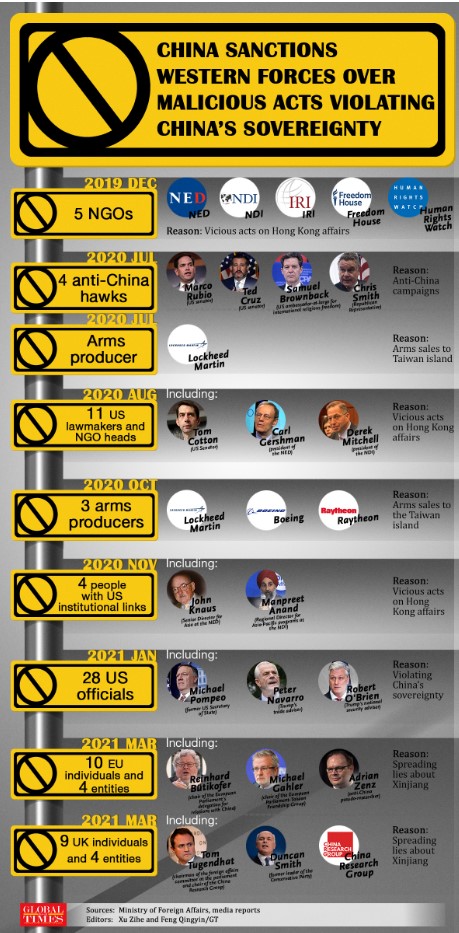Evolving Strategies: Russia’s Continued Sanctions Evasion Triggers Red Alert and New Sanctions Unit Unveiling
In the cat-and-mouse game of international sanctions, Russia’s persistent and adaptable tactics to evade restrictions have triggered heightened concern, prompting the National Economic Crime Centre (NECC) to issue a red alert.
In the wake of sanctions imposed on Russia, the nation has encountered substantial barriers in procuring various products, especially military supplies, from global markets.
As the nation manoeuvres through complex supply chains and clandestine financial pathways to sidestep sanctions, a new chapter unfolds with the unveiling of a dedicated Office of Trade Sanctions Implementation (OTSI) by the UK government.
Red Risk Alert
The issued alert, while directed at the regulated sector, holds relevance for businesses beyond this, particularly those involved in anti-money laundering activities such as customs brokers, freight forwarders, transportation, and logistics providers.
The alert, available on the NCA website, aims to fortify vigilance and due diligence across various sectors to curb illicit transactions designed to circumvent sanctions.
Earlier this year, G7 partners introduced the Enforcement Coordination Mechanism to strengthen compliance and enforcement measures, denying Russia access to benefits in G7 economies, including advanced goods, technologies, and services.
In alignment with this initiative, the UK, US, EU, and Japan jointly established a Common High Priority items list. This list encompasses numerous items frequently found on Ukraine’s battlefields, including integrated circuits and other electrical and mechanical components susceptible to exploitation in Russia’s efforts to evade sanctions.
As a result, businesses are strongly advised to conduct meticulous due diligence to ensure that products from this list do not ultimately reach Russia.
New Sanctions Unit
In another strategic move, on 11th December, Minister Nusrat Ghani unveiled plans for a new Office of Trade Sanctions Implementation (OTSI) to strengthen enforcement measures and combat companies evading Russian sanctions.
OTSI, scheduled for launch in early 2024, will assist businesses in complying with sanctions and investigate potential breaches. It will have the authority to impose civil penalties and refer cases to HMRC for criminal enforcement when necessary.

Ghani announced, “Our package of sanctions, the most severe ever imposed on a major economy, is working – goods imports from Russia to the UK have already plummeted by 94%.
“But we are leaving no stone unturned in our commitment to stopping Putin’s war machine. That means clamping down on sanctions evaders and starving Russia of the technologies and revenues it needs to continue its illegal invasion.
“[This] announcement will help us do that, and send a clear message to those breaking the rules that there is nowhere to hide.”
Ghani further explained, “OTSI will also be a game changer for British businesses at home where my department will help in building stronger international supply chains which are not dependent on malevolent foreign actors.”
Alongside the announcement, Sanctions Minister Anne-Marie Trevelyan emphasised the impact of these measures, highlighting that the UK and its international partners have imposed the most severe sanctions ever on a major economy, amounting to approximately £20 billion of UK-Russia goods trade being sanctioned.
Without international sanctions, Russia could have had over $400 billion more to fund its war efforts, potentially prolonging the conflict by an additional four years.
The launch of OTSI in 2024, alongside strengthened legal requirements, aims to reinforce the government’s existing efforts to ensure strict adherence to UK trade sanctions.
Offshore Leaks
Parallel to these measures, revelations from Cyprus Confidential illuminated the intricate financial manoeuvres employed by Russian oligarchs to navigate around sanctions. This International Consortium of Investigative Journalists (ICIJ) investigation, stemming from a leak of 3.6 million documents from Cypriot financial service providers and a Latvian company, exposes the sophisticated strategies used to transfer wealth from Russia to Europe.
Notably, discussions at a recent OffshoreAlert conference attended by NSN, highlighted the proactive stance of Russian entities, frequently utilising offshore entities to restructure and relocate assets as a pre-emptive measure against anticipated sanctions.
These intricate tactics involve the engagement of legal and financial experts adept at navigating the complexities of international regulations, facilitating the relocation of assets across multiple offshore jurisdictions.

The evolving nature of these strategies, meticulously crafted and regularly updated, poses a considerable challenge for regulatory bodies. Despite seemingly comprehensive due diligence carried out in these transactions, the depth of these schemes often remains elusive to uncover. The adeptness of sanctioned Russian individuals involved in these practices further complicates efforts by regulatory bodies to effectively trace ownership or financial movements.
However, amidst these challenges, the ongoing efforts by authorities to fortify vigilance and enforcement measures remain steadfast, with the publication of risk alerts and the launch of the OTSI underscoring the commitment of the UK and international partners to combat such practices effectively.


























































































































































































































































































